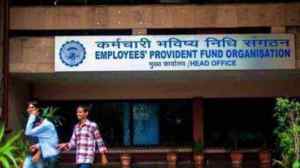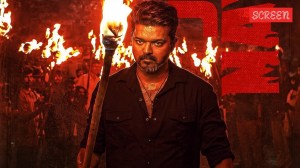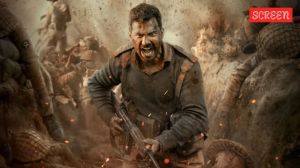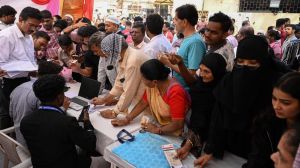Media as multiplier
If the world is a big stage, the primary actors at present are India and Pakistan. It is on them that the media lights are focused at presen...

If the world is a big stage, the primary actors at present are India and Pakistan. It is on them that the media lights are focused at present. What significance would Prime Minister Vajpayee8217;s war rhetoric have had if the media had chosen to ignore or sideline it? What impact would President Musharraf8217;s addresses 8212; of January 12 and May 27 8212; have had if they had not been televised throughout the world?
Practically none. This brings us to the central role that media plays in both war and diplomacy. Ever since the December 13 attack on the Indian Parliament, the Vajpayee government8217;s conscious whipping up of a war-like situation depended almost exclusively on how the media played it. Likewise, Musharraf8217;s strategic use of the media, from giving interviews to international channels and newspapers to his televised addresses, has reflected the manner he exploited the media for his war-diplomacy.
Using the media as their platform, both the leaders succeeded in getting their concerns highlighted without actually moving towards war.
But such media coverage has spelt both success as well as failure for India. The diplomatic success of the attempt to up the ante by threatening war rested crucially on India compelling the international community to view cross-border terrorism in Kashmir from the Indian angle. However, such internationalisation of the issue also went against India8217;s stance that Kashmir was an internal issue, or at the most an Indo-Pak dispute.
In other words, the substantial media coverage given to militant operations invariably attracts global attention to the Kashmir issue. By harping a little too much on Pakistan-aided terrorism, our leaders 8212; along with our media 8212; unwittingly fell into the very trap laid by the terrorist. When top politicians visit the bullet-ridden state or issue press statements, when Indian forces claim to have gunned down militants or when militants indulge in violence, militancy in Kashmir commands headlines all over the world.
What would work in our favour is if the media took the effort to appear a little more independent in its assessment of the Kashmir situation.
At least then the message would be conveyed that India is serious about its pursuit of democracy in Kashmir. Traditionally, the Indian media has given very little importance to the stand of ordinary Kashmiri. Also, every individual gunned down in Kashmir by the security forces is viewed as a terrorist, just because the security forces say so.
Perhaps, the importance accorded to the so-called Kashmiri militant would have had little negative impact if the media had not sidelined Kashmiris. Ultimately, coercive diplomacy against Pakistan, which centres on the Kashmir issue, can only work for a limited period.
To win the battle, Kashmiris have to be won over and the media has an important role to play in bringing this about.
- 01
- 02
- 03
- 04
- 05































